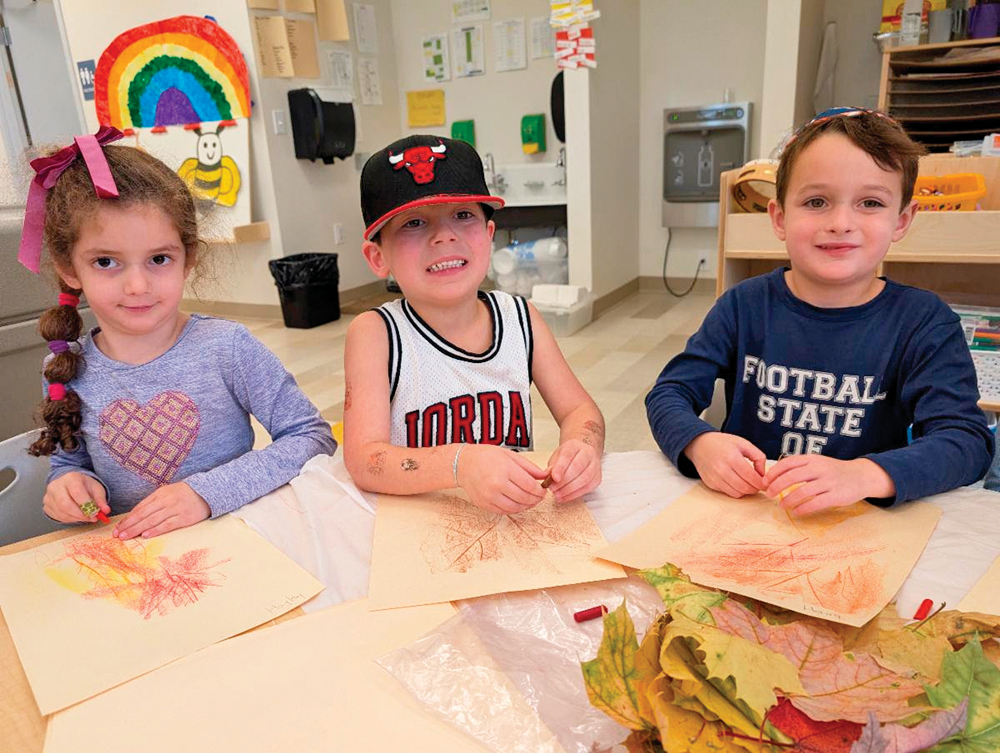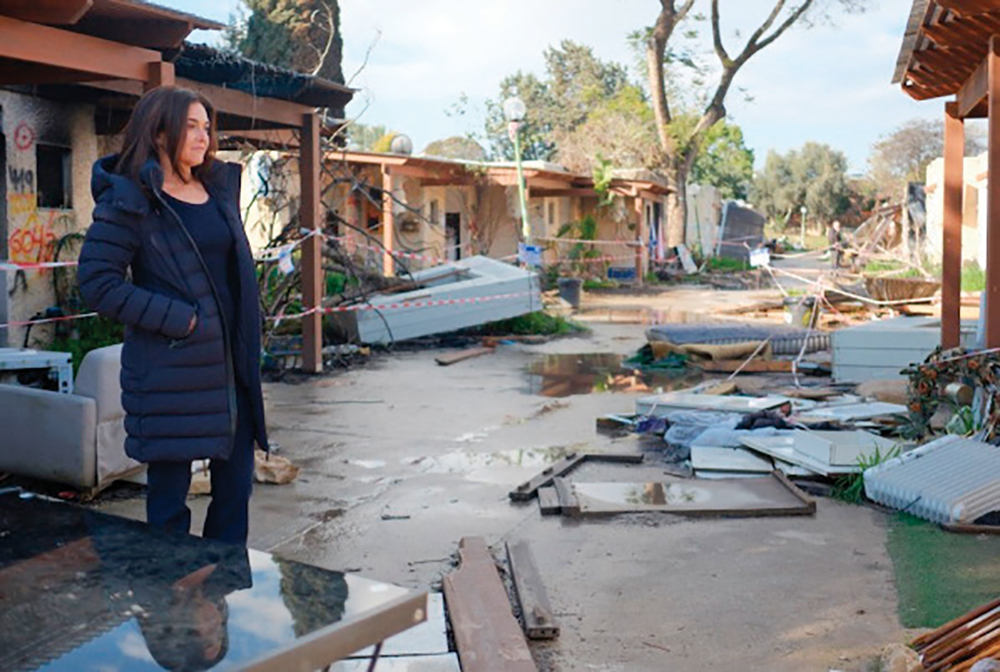
On the eve of Oct. 7, Columbia Hillel hosted a screening of “Screams Before Silence,” a film about the sexual violence that occurred during the Hamas terrorist attacks and in the months since. Sheryl Sandberg, the presenter of the film, is the former COO of Meta and founder of LeanIn.org. The event was sponsored and supported by other Jewish organizations on campus, as well as Barnard’s LeFrak Center For Wellbeing and the MilVets group at Columbia. Following the screening, Sandberg led a panel with experts on the topics of sexual violence, Middle East geopolitics and antisemitism.
Before the screening, Sandberg spoke about the film and her motivations for creating it. She began, “I can’t believe it’s been a year since October 7. But what I really can’t believe is how many times since then I’ve said the words, ‘I can’t believe.’” She continued by declaring this film the “most important work of [her] life,” saying that sexual violence should never be used as a tool of war. The goal of the documentary, Sandberg shared, is to enable the world to hear directly from the very few eyewitnesses of the massacre so that we can all bear witness.
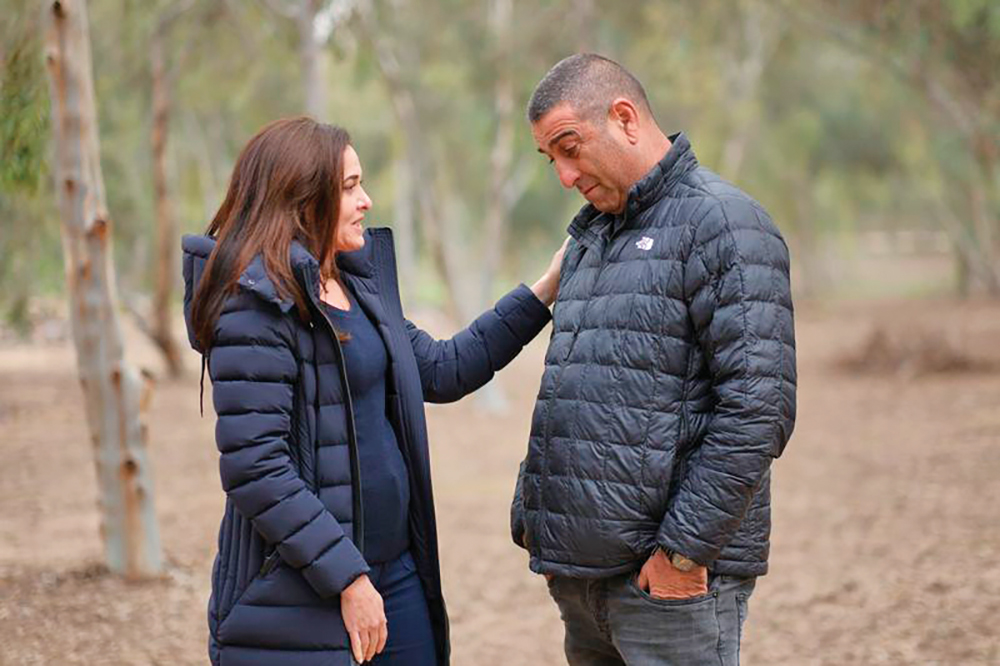
The hour-long film then began, in which survivors of the Nova Festival massacre shared their stories of violation and terror. Female former hostages shared what it was like to be held captive, trembling, abused by their captors in tunnels under Gaza for over 50 days. Paramedics, ZAKA officers and soldiers described what they saw; upon arriving to help, they struggled to find life among the piles of bodies and rubble. Videos played of the decimated Nova Festival site, full of dead bodies. Former hostages and Kibbutz Nir Oz residents returned to their destroyed homes, reliving the moment of their worst nightmares. Nova survivors returned to Re’im and discovered the camper vans they had hidden in still standing, sprayed with bullet holes. From the lecture hall, silent tears ran down the viewers’ faces, who were clearly shocked to witness such clear evidence of the brutality that had taken place.
After the screening, Sandberg welcomed the panelists to speak about what had been shown in the film: Sheila Katz, CEO of the National Council of Jewish Women; Nadav Eyal, Israeli journalist; and Magda Schaler-Haynes, professor at Columbia’s School of Public Health.
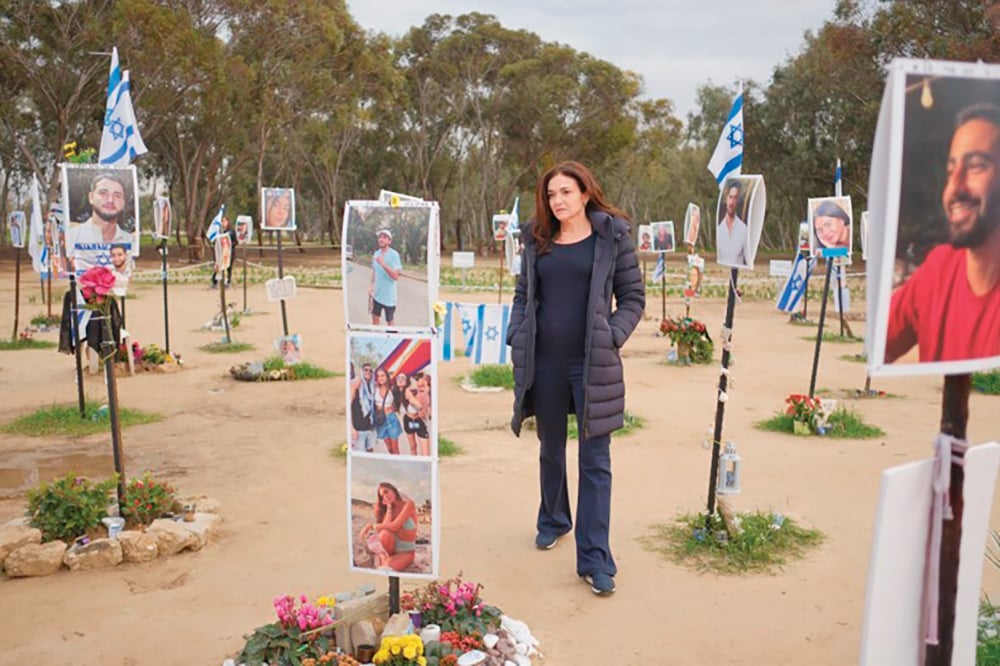
Sandberg asked: A year later, how are so many people ignoring, or even excusing, the sexual violence Hamas committed on Oct. 7? Katz stated, “Rape is not resistance. Rape is a crime against humanity. We always call out rape and sexual violence. There are no excuses.” Katz described the film as undeniable proof of what happened that day, “[giving] the last bit of dignity that could possibly be given to people whose voices were taken away from them, and [giving] us what we need to speak up for women who are silenced.”
Sandberg then turned to Schaler-Haynes, a member of the Antisemitism Task Force at Columbia, to ask about the evolution of antisemitism on campus this year and the importance of balancing free speech with students’ safety. Schaler-Haynes announced that “we have a lot of work to do” on the task force, working “to amplify the voices of our students and their experiences.” She shared that many of the students the task force heard from felt that the university community and administration had failed them, pointing to “a broken social compact here at our beloved university.” While the task force focuses on antisemitism, its strategies speak to the needs of all students on campus, promoting the belief “that everyone here should experience university life, free of discrimination, and bias and exclusion.” This primarily requires assurance that demonstrations are peaceful. Schaler-Haynes profoundly stated, “With free speech rights come free speech responsibilities. Just as we have the right to speak our minds in pursuit of truth, we have the responsibility to respect, indeed to protect, this right for others.”
Turning to Eyal, Sandberg mentioned the shocking and blatant support for Hamas’s actions that was seen shortly after the massacre. She asked Eyal to help understand what’s truly happening in the conflict. For Eyal, the sense of immediate denial and even celebration was painful, especially because it did not allow Jews and Israelis the time to properly grieve. He stated, “Everyone who cares about humanity, who thinks that this kind of political violence, or fundamentalism leading to political violence, is just wrong.” He does not condemn those who reject two-state citizenship, but explains, “Trying to reject the very existence of Israel is a form of anti-modernism, anti-Westernism, and is making Israel into the absolute totem of Western society. And it is the irony of history that the state that is the national home of the Jews has become a symbol of everything that is wrong with the West.”
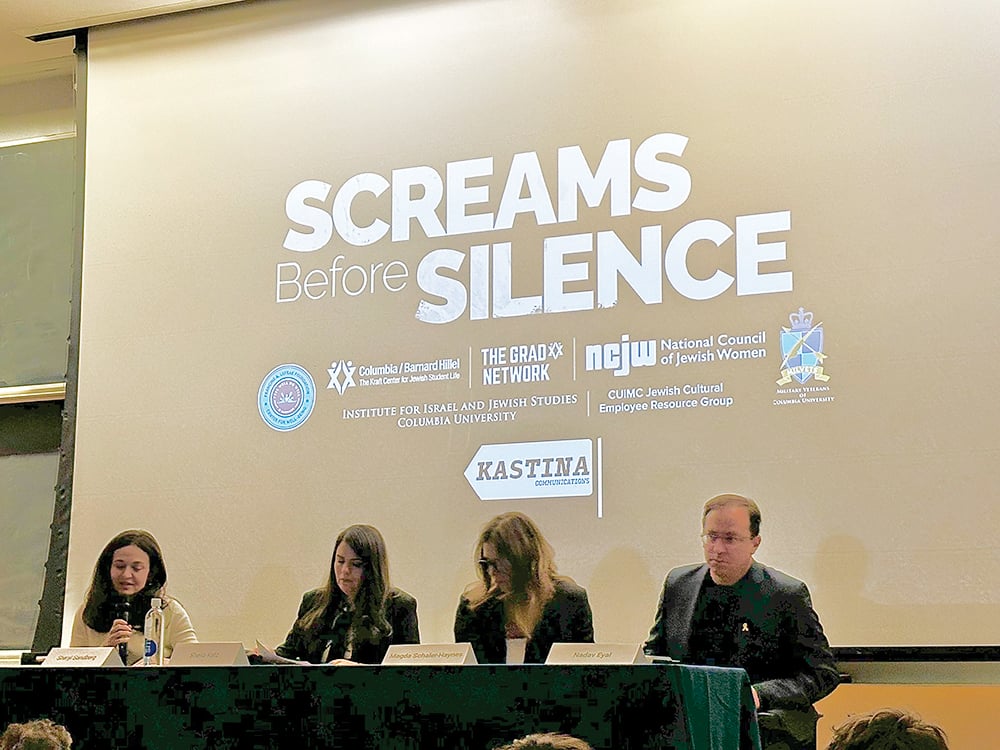
In response to the question of how to make sure this awareness is maintained, Katz expressed that “we have an obligation to believe survivors, and we have an obligation to allow survivors the autonomy to decide if, when, and how to share their stories.” Schaler-Haynes followed with the fact that sexual violence still occurs as a tool of war all over the world, and that sharing stories is crucial to making sure it does not continue.
When asked if peace between Israel and its neighbors is possible, Eyal replied, “I think that peace is not only possible, I think peace is inevitable.” Not in the sense of sitting at a meal together, but “the kind of peace in which people don’t die, and that’s the most important thing.” The peace treaties Israel has made with its neighbors in recent years are proof that peace is possible.
As the panel came to a close, Katz urged listeners to “continue interrogating ideas, promoting critical thinking and engaging in dialogue across differences.” Utilizing the imagery of the shofar, she described its broken tones as waking us up from our routines, drawing our attention to the injustices in our communities and around the world. “You get to be the light on this campus and speak the truth and what you know is right; make sure that you hear that broken sound and turn it into repairing our broken world.”
In Sandberg’s chilling words, “We scream after their silence.”
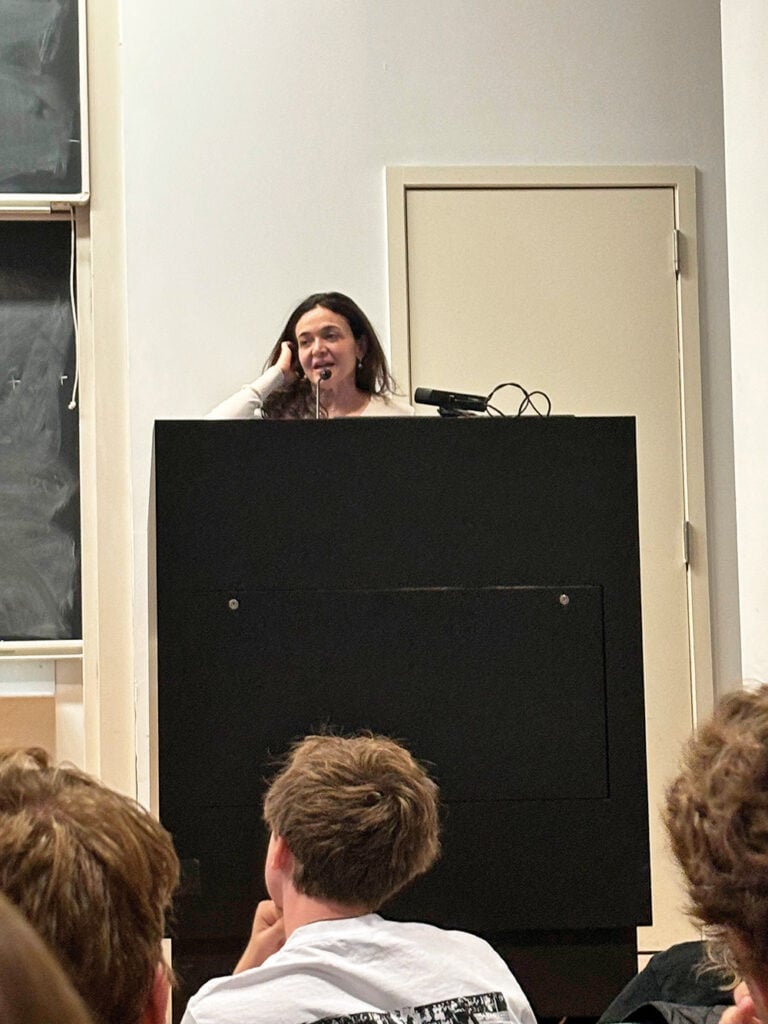
Eliana Birman is the assistant digital editor for The Jewish Link. She is a student at Barnard College and lives in Teaneck.







